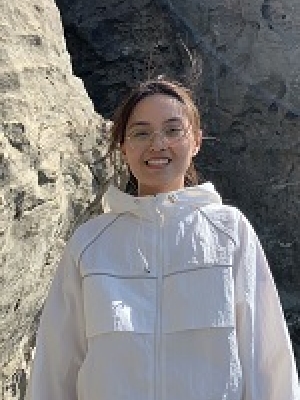中山大学医学院副教授,硕士生导师。2021年获聘中山大学“百人计划”引进人才。目前主要的研究方向是利用肿瘤突变频谱推断致癌机制。
不同的致癌物或致癌机制在肿瘤细胞中会形成特定的突变频谱。课题组通过对马兜铃酸这一强致癌物质的致癌机制的分析,首次在膀胱癌及肝癌中找到了马兜铃酸的突变频谱,揭露了马兜铃酸的致癌问题的普遍性及广泛性。利用实验数据与病人数据相结合的方法,课题组对不同的致癌物质如黄曲霉毒素及顺氯氨铂(化疗药物)进行研究,直接证实了突变频谱与致癌机制之间的关联。近期,课题组参与了国际肿瘤基因组协作组的全基因组泛癌分析中的突变频谱分析,收集了迄今为止规模最大的肿瘤突变数据,从中挖掘出全新的突变频谱,并将不同突变频谱与不同致癌机制的关联起来。相关研究成果以第一或共同作者发表在Nature,Genome Research,Cancer Discovery,Science translational medicine等多种国际学术杂志和期刊上。Google scholar 总引用次数达1000余次。
研究方向
1. 利用肿瘤突变频谱研究致癌机制; 2. 开发计算方法推断不同癌症中的突变频谱组成。
教育和工作经历
2021/8 – 今,中山大学医学院,副教授
2018/09 – 2020/11,美国国立研究院,博士后
2017/04 – 2018/06,杜克-新加坡国立大学医学院,博士后
2012/08-2017/03,杜克-新加坡国立大学医学院,癌症与干细胞生物方向,博士
2008/09-2012/06,上海交通大学,食品科学与工程,学士学位
研究生招生
071000生物学-Z1生物学(生物信息学)
欢迎对科研感兴趣的学生报考!联系方式:huangmn33@mail.sysu.edu.cn
著作
1. Alexandrov L#, Kim J#, Haradhvala NJ#, Huang MN#, Ng AWT, Boot A, Covington KR, Gordenin DA, Bergstrom E, Lopez-Bigas N et al. 2020. The Repertoire of Mutational Signatures in Human
Cancer. Nature, 578(7793), 94-101.
2. Huang MN#, Yu W#, Teoh WW, Ardin M, Jusakul A, Ng AWT, Boot A, Abedi-Ardekani B, Villar S, Myint SS et al. 2017. Genome-scale mutational signatures of aflatoxin in cells, mice, and human
tumors. Genome Res 27: 1475-1486.
3. Huang MN, McPherson JR, Cutcutache I, Teh BT, Tan P, Rozen SG. 2015. MSIseq: Software for
Assessing Microsatellite Instability from Catalogs of Somatic Mutations. Sci Rep 5: 13321.
4. Poon SL#, Huang MN#, Choo Y, McPherson JR, Yu W, Heng HL, Gan A, Myint SS, Siew EY, Ler
LD et al. 2015. Mutation signatures implicate aristolochic acid in bladder cancer development.
Genome Med 7: 38.
5. The ICGC/TCGA Pan-Cancer Analysis of Whole Genomes Consortium. 2020. Pan-cancer analysis of whole genomes. Nature 578, 82–93.
6. Bergstrom EN, Huang MN, Mahto U, Barnes M, Stratton MR, Rozen SG, Alexandrov LB. 2019. SigProfilerMatrixGenerator: a tool for visualizing and exploring patterns of small mutational events. BMC Genomics, 20:685.
7. Boot A, Huang MN, Ng A, Ho SC, Lim JQ, Kawakami, Y, Chayama K, Teh BT, Nakagawa K, Rozen SG. 2018. In-depth characterization of the cisplatin mutational signature in human cell lines and in esophageal and liver tumors. Genome Research. 28. 10.1101/gr.230219.117.
8. Ng AWT, Poon SL, Huang MN, Lim JQ, Boot A, Yu W, Suzuki Y, Thangaraju S, Ng CCY, Tan P et al. 2017. Aristolochic acids and their derivatives are widely implicated in liver cancers in Taiwan and throughout Asia. Science translational medicine 9.
9. Jusakul A, Cutcutache I, Yong CH, Lim JQ, Huang MN, Padmanabhan N, Nellore V, Kongpetch S, Ng AWT, Ng LM et al. 2017. Whole-Genome and Epigenomic Landscapes of Etiologically Distinct Subtypes of Cholangiocarcinoma. Cancer Discov 7: 1116-1135.




